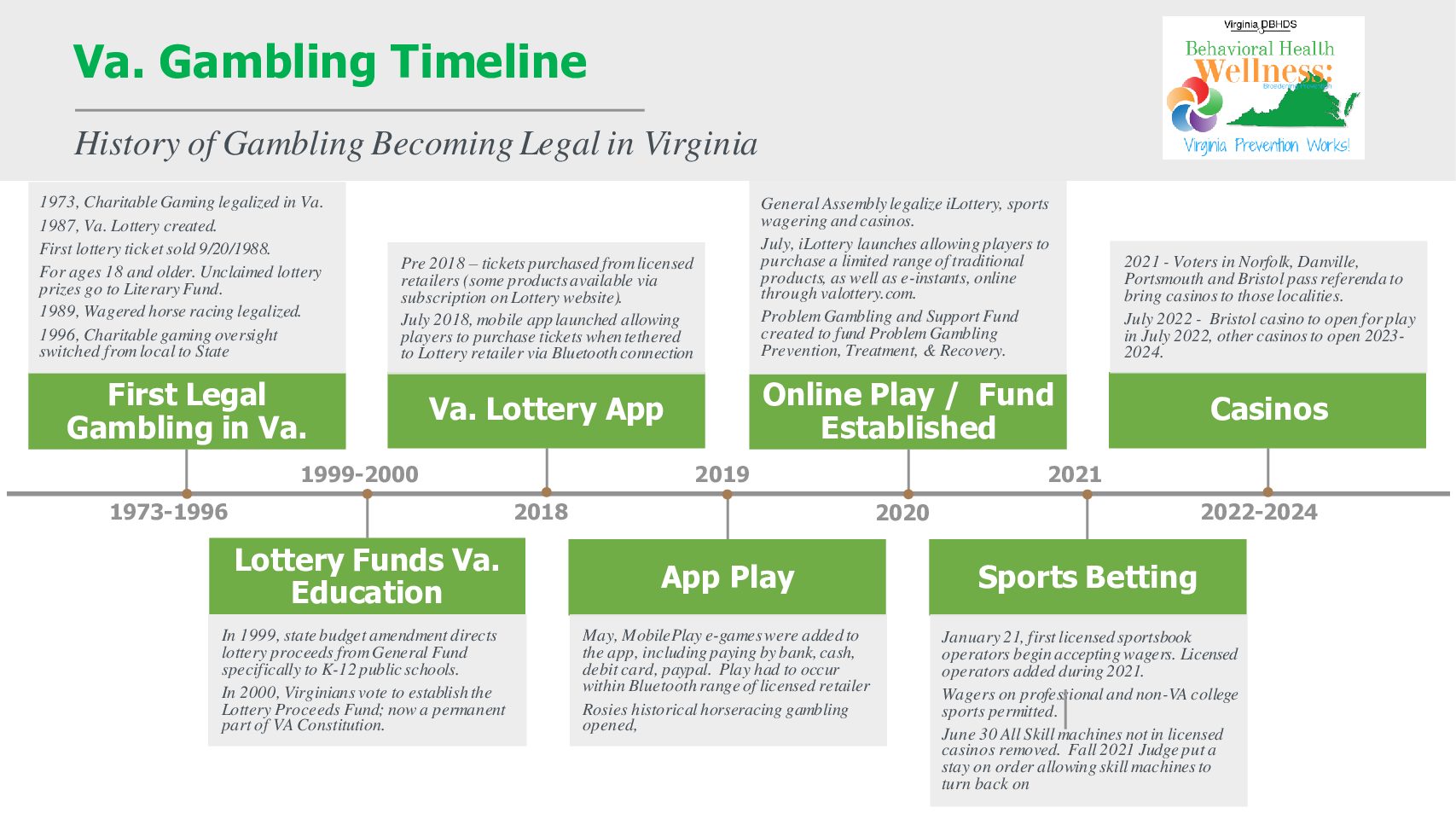Prevention of Problem Gambling and Gaming
Gambling and gaming addiction, just like most addictions, can cause negative consequences in one’s life because of inability to stop. This can include cards, casinos, sports betting, lottery, virtual games, and more.
The likelihood of developing this addiction can increase due to accessibility, social acceptance, or norms, and being an adolescent. Virginia legally allows state-run lottery, casino gaming, sports betting, horse racing, skill gaming, and charitable gaming.
The current law and policies in Virginia increase the accessibility and acceptance of participating in different methods of gambling.
Following recent laws legalizing new forms of betting, Virginia created The Responsible Gambling Promotion Program to implement strategies that provide education, information dissemination, community-based processes, and environmental change. The program works closely with the 40 Community Services Boards and in partnership with the Virginia Council on Problem Gambling and the Virginia Lottery and Gaming Department.

Our goals through Problem Gambling Prevention (PGP) is to stop an individuals’ progression of either going from no gambling or gambling for recreational fun to the point where individuals begin to develop problems due to gambling too much and require diagnosis and treatment.
Gambling is Defined as:
Gambling (also known as betting) is the wagering something of value (“the stakes”) on an event with an uncertain outcome with the intent of winning something else of value. Gambling requires three elements to be present:
- consideration (an amount wagered);
- risk (chance); and
- a prize.
Problem gambling –or gambling disorder– includes all gambling behavior patterns that compromise, disrupt or damage personal, family, or vocational pursuits.
Persistent and recurrent problematic gambling behavior leading to a significant impairment or distress.
Sings and Symptoms of Problem Gambling
If you answer yes to at least four of the following symptoms in a 12-month period you may have a Gambling Problem.
- Needs to gamble with increasing amounts of money in order to achieve the desired excitement
- Is restless or irritable when attempting to cut down or stop gambling
- Has made repeated unsuccessful efforts to control, cut back, or stop gambling
- Is often preoccupied with gambling (e.g., having persistent thoughts of reliving past gambling experiences, handicapping or planning the next venture, thinking of ways to get money with which to gamble)
- Often gambles when feeling distressed (e.g., helpless, guilty, anxious, depressed)
- After losing money gambling, often returns another day to get even (“chasing” one’s losses)
- Lies to conceal the extent of involvement with gambling
- Has jeopardized or lost a significant relationship, job, education, or career opportunity because of gambling
- Relies on others to provide money to relieve desperate financial situations caused by gambling
Where to get help
Gamblers Anonymous
12-step program for problem gambling
Gam-Anon
Self-help organization for spouse, family or close friends of a problem gambler
GamTalk
24/7 moderated online peer support forum
